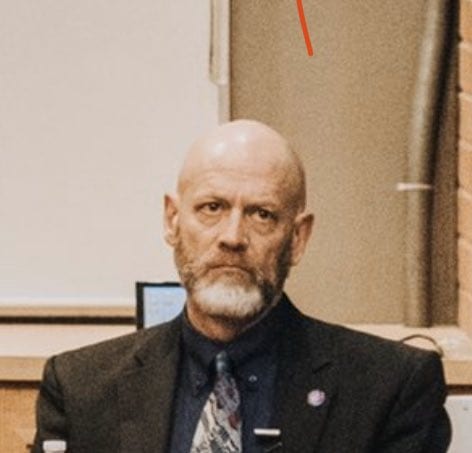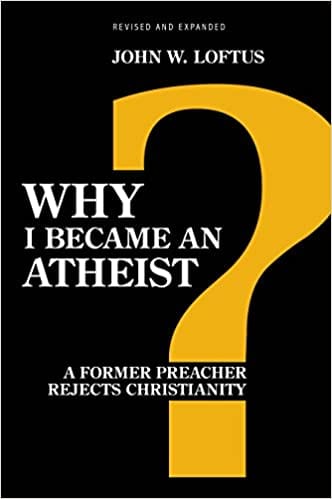
***
I want you and your adherents to know that I am not . . . so faint-hearted as to be disturbed by your insults. But the fact that you are so disparaging, derogatory, and utterly contemptuous towards my Discussion argues that it is not as contemptible as you make out. If it did not bear down on you, your pen would not have produced such outrageous insults to its author.
[Y]ou are so impudent in your insults . . . so unrestrained in your abuse when you are hemmed in by arguments, that no one, even if he bent over backwards to be fair to you, could find any excuses for your spirit. (Erasmus responding to Martin Luther, Hyperaspistes [1526], pp. 103, 140 in Vol. 76 in Collected Works [1999] )
Matthew 5:11-12 (RSV) Blessed are you when men revile you and persecute you and utter all kinds of evil against you falsely on my account. Rejoice and be glad, for your reward is great in heaven, for so men persecuted the prophets who were before you.
Matthew 10:22, 25 and you will be hated by all for my name’s sake. . . . [25] . . . If they have called the master of the house Be-el’zebul, how much more will they malign those of his household.
Man, this was tough to narrow down to a mere ten, but I thought I’d have some fun with it. At bottom, however, it is very serious, since it is sin (see my final remarks).
***
10. Steve Skojec [radical Catholic reactionary and former webmaster of One Vader Five]
I’d characterize you as an arrogant bloviator with a penchant for TL;DR diatribes . . . I do believe, though, that you’ve helped people over the years. I have friends who benefited from you during their conversions before they realized what a self-parody you have become. They find it sad that you’re so far from who they thought you were. . . . at the present moment, you’re doing more harm than good with your name-calling and your absurd denials of the truth in front of your face, and that’s why you’re just not taken seriously by many people now. Trying to debate with you about anything is an exercise in futility – not because of your skill as a rhetorician, but because you simply are unable to conceive of any scenario where you aren’t the triumphalistic victor. . . . We’re trying to do work here that matters, and we don’t have time for playground fights.
[5-26-16]
Personally, I’ve found you ridiculous from the moment I first ran into you. You’re a modern day, post-conciliar Don Quixote, all bravado and sword swinging, invariably picking the wrong targets. . . . here you are, sword as dull as ever, energy for a thousand battles, none of them worthwhile. . . . you’ve been wrong as long as I’ve ever come across anything you’ve written about anything that matters, and history will judge you to have been on the wrong side of the schism that is even now coming to a head. It’s a thing, I think, with Protestant converts. They don’t have sola scriptura anymore, so they resort to papal positivism as their one and only guide. Is the current pope saying something that’s an almost complete contradiction of one of his predecessors? No problem! Like Muslims have the theological principle of abrogation, we have Super-Ultramontanism! . . . we have a bad pope (and a run of Modernist-influenced ones before him) and are still reeling from a bad council and a bad Mass means having to deal with an uncomfortable level of cognitive dissonance. . . . You could be a part of the solution if you want, but only if you stop making it about you and start making it about the truth. . . . I feel bad for you, I really do. Someone was calling you the Napoleon Dynamite of Catholic Apologetics, but really, you’re the Uncle Rico. You just keep fantasizing, 20 years on, about what would have happened if coach had just put you in fourth quarter. You keep telling people that you can throw a football over the mountains from your front porch. But coach didn’t put you in, and you can’t throw that far, and the only thing that matters right now is if you fight the evil that is, at this very moment, threatening to strangle the faith of millions of Catholics because it is being perpetrated from the very top. [5-28-16]
It’s all about you. All hubris, all the time. . . . of course, you pulled your trademark move of twisting whatever the other person says to fit your narrative. You’re not just predictable, you’re on rails. Get over yourself, Dave. You’re not even a little deal. And you are doing more harm than good. [5-28-16]
I like the folksy style and Steve’s way with words, and wanted to preserve it. No one I’ve seen in the present era can insult with the sheer derision and contempt in the way that Steve does. But I pity him and think I understand. He barely has any [Catholic] faith anymore, absolutely hates Vatican II, and has virtually asserted that the Church and Pope Francis have entered into heresy, which is contrary to the Catholic dogma of the indefectibility of the Church and of the pope. Pray for the man. He is in very deep spiritual trouble and could very well end up an atheist if he doesn’t change his dangerous trajectory soon.
***
9. John Loftus [prominent online atheist author and webmaster]
You’re a joke. I’m surprised you have an audience. You’re also a psychologist, eh? Wow! . . . Again, you’re a joke. To think you could pompously proclaim you are better than me is beyond me when you don’t know me. It’s a defensive mechanism you have with people like me. It’s called respecting people as people, and Dave’s Christianity does not do that with people who don’t agree with him. I’m just tired of pompous asses on the internet who go around claiming they are superior to me in terms of intelligence and faith. Such arrogance makes me vomit. . . . self-assured arrogant idiots out there, like Dave, who prefer to proclaim off of my personal experience that they are better than I. (10-16-06)
You are an idiot! You never critiqued my whole deconversion story. Deconversion stories are piecemeal. They cannot give a full explanation for why someone left the faith. They only give hints at why they left the faith. It requires writing a whole book about why someone left the faith to understand why they did, and few people do that. I did. If you truly want to critique my deconversion story then critique my book. Other than that, you can critique a few brief paragraphs or a brief testimony, if you want to, but that says very little about why someone left the faith. You walk away thinking you have completely analysed someone’s story. But from where I sit, that’s just stupid. That’s S-T-U-P-I-D! If you truly want to critique a deconversion story, then critique mine in my book. I wrote a complete story there. . . . I challenge you to really critique the one deconversion story that has been published in a book. It’s a complete story. A whole story. It’s mine. . . . Do you accept my challenge? (10-16-06)
John was rather displeased because I critiqued his “deconversion” story and showed, I think, that his reasons for rejecting Christianity were woefully inadequate and at places downright silly or ignorant. At first, I refused to take up his challenge, because I wanted him to d=send me a PDF copy of his book (traded for several of mine), and he refused. But in September 2019 I bought a paper copy of his book and took up the challenge, writing ten in-depth critiques of it. And guess what? Surprise! He has utterly ignored all ten.
***
8. Dr. Eric Svendsen [anti-Catholic Protestant author and former webmaster]
[T]here are not that many of us who take Armstrong’s writings seriously . . . his writings are little more than a bunch of words that have been loosely strung together). (1-3-05)
. . . strategy of deceit that he [yours truly] uses all the time . . . (1-11-05)
*
[T]he “nature” of his apology was insincerity . . . That’s the “strategy of deceit” that Paul refers to in Ephesians 4. (1-13-05)
*
He has no problem with lying, so long as he thinks he can pin that same charge on someone else; that way he doesn’t “appear” to be lying. What a sad spectacle. (1-14-05)
*
What’s my “lack of charity” got to do with DA’s lack of honesty? Nothing. . . . that’s just what DA does best–he deceives, and he usually accomplishes that by focusing on half-truths (that’s the “strategy of deceit” that marks the heretic). (1-15-05)
Eric has been known on several occasions to declare that some unfortunate is definitely damned to the fires of hell. But I suppose that if he thinks I am a heretic, I am already consigned to the reprobate in his fertile discerning mind. He was one of the more colorful and active anti-Catholic polemicists online, in the early 2000s. Then he decided to leave the Internet in April 2010 (I did a fond remembrance post) and has never been heard of since (to my knowledge). I’d like to think that he came to his senses (at least to some extent).
***
7. Gene M. Bridges [anti-Catholic Protestant] (10-25-07)
[Y]ou are a chronic liar . . . shoddy, incompetent, and anachronistic exegetical work. . . . Titus 3 says to reject the factious man. You are the epitome of that man. . . . Further, this isn’t about the truth for you Dave, however defined, it’s about stroking your own overbloated ego. . . . a person of such obviously low character . . .
I’m surprised (and a bit disappointed) that Gene didn’t consign me to hell, or at least to the insane asylum . . . this could have been so much better! But to be fair, in the same post, he consistently compared me to the Korean dictator (i.e., the father of the present one), complete with pictures. That’s pretty good, too!
***
6. “Turretinfan” [anti-Catholic Protestant Calvinist and blogmaster]
Dave . . . is a self-appointed e-poligist [sic] and largely self-published author. [I have had eleven books “officially” published, by six major publishers: four of them bestsellers, and ten additional ones by FaithLife / Logos: the largest Christian electronic publisher; I also have several Imprimaturs] . . . not all of his doctrines are Catholic . . . Dave has apparently never defined Christianity. . . . Maybe Dave will actually stand behind the dogmatic declarations of the church for which he is allegedly an apologist. (10-29-07)
[Y]ou’re not really in line with orthodox Roman Catholic teaching, Dave. (7-6-09)
*
You are as kind as you are wise or honest. (8-21-09)
*
I’ve recently commented on your lack of integrity. It seems this is going to be an ongoing trend for you. (8-21-09)
*
[Y]our agenda is more important to you than the truth. (8-21-09)
*
This particularly obnoxious fool is so obsessed with his anonymity that he actually has appeared in live debates with Catholics with a bag over his head (looking like either a Klansman or a kid at Halloween with a lousy costume). I’ve noted and/or refuted several of his ridiculous opinions, such as that God wanting men to sin, and statues of Jesus Christ being idols.
*
***
5. James Swan [anti-Catholic Protestant polemicist and webmaster]
I’m not the one publishing books and attempting to define my very being as an “apologist.” If these men wish to be taken seriously, I suggest they do serious work. . . . [He] craves attention. (12-22-07)
*
This is a big difference between DA and I. I’ve never been bored. I actually have a job, . . . On the other hand, I think DA considers sitting up in his attic tapping away on a computer all day an actual job. Oh that’s right, he’s a professional Catholic apologist. (7-17-09)
*
I think it’s quite possible you have serious psychological issues. . . . your cyber-behavior strikes me (and probably others) as very bizarre. If you get yourself checked out, and my suspicions prove accurate, and you get the help you need, be it medication or therapy, and we see a change in your cyber behavior, . . . I don’t want to be known as a guy who picked on a person struggling with deep psychological issues. . . . (8-24-09)
*
[P]erhaps it is time we back of from Dave Armstrong a bit. I know you probably think I’m being sarcastic, but actually, I’m not. . . . There’s just something not right with Mr. Armstrong. I think he needs some help. (8-26-09)
*
Yes indeed, I do find your shenanigans quite odd behavior. . . . I think you’re wacky, . . . your eratic [sic] behavior, particularly on my blog, lead[sic] me to question whether or not you needed help. (2-27-10)
*
Part of looking over your “work” and commenting on it is nothing else than showing why you shouldn’t be taken seriously. (4-18-10)
*
This guy’s a real piece of work. I don’t say that he’s nuts, as he says about me, but I do say (from long sad experience over 18 years) that he is a first-class fool and inveterate liar: at least when it comes to anything to do with me. He was at least somewhat cordial in the beginning of our interactions (as much as an anti-Catholic bigot can be with a Catholic), but what put him over the edge was foolish pride: after (in June 2003) I roundly refuted his second hit-piece about my Luther research that he had worked so hard on (with 201 footnotes, no less!). It probably took him several weeks to write; took me just a few hours to refute. That blow to his ego was just too much to take, and so he has “replied” ever since with the asinine juvenile insults we see above. Bitterness and jealousy drive many many people to serious sin.
*
***
4. Mary Hammond [liberal Catholic]
I put forth to you right now that Dave Armstrong, without regard to who trained the ass, educated the ass, is a reflection of exactly what’s wrong with the Catholic Church in America today. If you want to know why it’s split and disfunctional [sic] as a unifying force? Look at Dave. He is the spitting image. . . . Dave Armstrong- you as a heart- aren’t worth the Tomahawk payload to blow you to hell. . . . And if I was your wife I’d divorce you. For being a prissy phony.
*
[Mary reminds me of a funny saying from Winston Churchill. Some woman who didn’t like him much said, “Sir, if I were your wife, I’d put poison in your tea.” The great man replied, “Madame, if you were my wife, I’d drink it.”]
*
. . . You are in this for the money. Not me. Peace out. You are off the rails and too egotistical to know who your friends are. . . . My daughter married such a nightmare. . . . I think if I were you I’d spend sometime wondering who the hell I was before God. Trembling before him certainly is not in your line. . . . what he sorely lacks for as an apologist is love- either for people or the Church. Can’t quite leave his Protestantism behind. . . . A sad sad case Dave is. No love. . . . There is no love, no peace, no charity on your page or in you. You abuse anyone who disagrees with you. And apparently your no does not mean no and your yes does not mean yes. . . . Still waiting for some Catholic apologetics. . . . I also venture to say that one of the more truly toxic forms of Catholicism are with those who convert yet never truly leave their Protestant home. They are neither one or t’other. . . . Not only are you an idiot, but unethical, a bulky and a liar. . . . You are just amazingly STUPID. It boggles the mind anyone reads you at all. . . . It’s time you got a real job man. . . . I have no intention of reading apologetics from a guy who acts premenopausal.. . . This is all you’ve got. Gossip, . . ., slander, calumny, insults and screenshots. Stop blaming the Church by calling this pig tripe of yours “apologetics”. . . . Armstrong just has no credibility left. . . . An apologist? The man is a joke. . . . complete dishonesty . . . Very dishonest and completely unaware of his own prejudices. . . . It’s hard to decide what is worse. Dave Armstrong or his supporters. (
April 2017 on my own Facebook page]
*
Mary would derive huge benefit from a reading of Proverbs. But of course she wouldn’t apply the “fool” verses to herself:
Proverbs 18:2 (RSV) A fool takes no pleasure in understanding, but only in expressing his opinion.
Proverbs 18:7 A fool’s mouth is his ruin, and his lips are a snare to himself.
Proverbs 15:2 The tongue of the wise dispenses knowledge, but the mouths of fools pour out folly.
***
3. The late Steve Hays [anti-Catholic Protestant webmaster and polemicist]
[G]uys like Dave Armstrong . . . present an artificially Evangelicalized version of Roman Catholicism . . . sterile hybrid theology that isn’t consistently Catholic or Protestant. (9-14-06)
*
I used to think that Dave Armstrong was just a jerk. Not deeply evil. Just a jerk. . . . He isn’t just a narcissistic little jerk. He’s actually evil. It’s not something we can spoof or satirize anymore. He’s crossed a line of no return. (4-13-09)
*
[H]ypersensitive, paranoid, an ego-maniac, narcissistic, with a martyr and persecution complex, . . . a self-obsessive individual . . . Not only is Dave an idolater, but a self-idolater. He has sculpted an idol in his own, precious image. A singular, autobiographical personality cult. (7-16-09)
*
You have to wonder what Armstrong would do with himself in heaven. I don’t think heaven is big enough for God Almighty and David Armstrong. If Armstrong ever gets to heaven, he’ll have to evict the Lord to make room for himself. Dave is his very own religion. Both subject and object. He carries around a mental icon of his adorable self-image. Lights imaginary candles to his self-image. Burns imaginary incense to his self-image.
*
This overweening self-importance isn’t limited to Armstrong. In my observation, it’s fairly characteristic of Catholic converts who become pop apologists. . . . What is it about Catholic converts like Armstrong which selects for this particular mindset? (“The Cult of St. Dave”, 7-16-09)
*
[Y]ou play the innocent victim when someone exposes your chicanery. . . . you’re a hack who pretends to be a professional apologist . . . you don’t do any real research. . . . Dave is a stalwart enemy of the faith. He’s no better than Richard Dawkins or Christopher Hitchens. Just like the militant atheist, his MO is to destroy faith in God’s word to make room for his alternative. (1-28-10)
*
[Y]our persecution complex (btw, you need to have your psychiatrist up the dosage) . . . I didn’t say you were evil in this one instance. You have an evil character. . . . There’s always a clientele for P. T. Barnums like you. . . . I’m supposed to be taken in by your bipolar tactics? (1-29-10)
*
. . . a schizophrenic guy like Armstrong . . . One of Dave’s problems is his lifelong love affair with himself. He reacts to any imagined slight the way a normal man reacts if someone slights his wife or mother or girlfriend. . . . Dave is self-important. . . . If would help Armstrong if, in refuting the allegation that he’s emotionally unhinged, if he didn’t become emotionally unhinged whenever he hears the allegation. . . . because he doesn’t trust in the merit of Christ alone for salvation, Dave has an insatiable need for self-justification. He, like other Catholics, has no peace of mind. . . . Yes, Dave, that’s evil. Pure evil. . . . Of course, that’s symptomatic of Armstrong’s instability. (4-18-10)
*
It’s bad enough to be a narcissist, but when you’re at war with your mirror-image, who’s left to turn to? It’s hard to be Dave Armstrong. Hard to be a bipolar solipsist. (“Split-personality narcissist”, 8-3-11)
*
Both Paul Hoffer and Dave Armstrong are bad men who imagine they are good men. That’s not unusual. Bad men often have a high opinion of their own motives. And Catholicism reinforces that self-deception. (12-7-11)
*
This is seething literal hatred and contempt, in a way that only an anti-Catholic Calvinist applying his own false doctrine of total depravity can express. The problem with supposedly “determining” who is of the elect or not (which means also who is going to hell) is that the Bible never sanctions doing any such thing (and even John Calvin agreed). But once a person goes down that road and doesn’t like someone else or his or her ideas, the danger is that they will decide that they are scumbags, judged by God and on the way to hell. This in turn justifies any outrages and slanders heaped upon the object of derision. It’s as far away from the love of Jesus and the fruit of the Holy Spirit as can be imagined. I don’t thereby conclude that the one committing such sins is not a Christian. But I do know for sure that such inveterate lying puts them in serious spiritual danger. I sincerely pray that Steve was saved when he passed in the last year. I know that God does everything in His mercy to save as many as possible, given human free will and sin.
***
2. The Right Reverend Bishop “Dr.” [???] James White [anti-Catholic Reformed Baptist Apologist, Elder, Author, famous debater, with a supposed PhD, etc., etc.]
DA lacks the ability to engage the text of the Scriptures in a meaningful fashion, and 2) DA will use anything to attack the truth. . . . As to the first, I simply direct anyone to the “exegesis” presented in A Biblical Defense of Catholicism, his 2001 publication. The book is a monument to how to ignore context, avoid grammar, shred syntax, and insert the traditions of Rome willy-nilly into any passage you cite. . . . DA thinks himself a modern Socrates, yet, his writing takes wild leaps from topic to topic, inserts endless (and often gratuitous) irrelevant material that serves only to cover the shallow nature of what is being said, and in the end requires one to possess the skill of nailing jello to a wall to be able to respond to it for its utter lack of substance. (3-28-04)
*
[I]f you read his materials, he’s very very high on himself and, uh, makes sure that you know how many books he’s written. Of course, they’re vanity published,
[at this point in time — April 2004 — I had two books published, by two different Catholic publishers: one the largest one: OSV; both bestsellers]
but how many books he’s written, and uh, you read the top of his page, and it’s [mocking tone] exegesis and history and apologetics and philosophy and all this stuff, and you know, in your heart of hearts, that this fella, uh, bless his soul, has no idea what he’s talking about. He’s read some books, but the important foundational stuff that allows you to actually make sense out of all that stuff, he’s clueless; he has no idea what he is talking about, but he writes constantly!
. . . Cuz, it’s sorta, sort of; it’s really disturbing to me, uh, that I hear from people, and they go, “well, well, whaddya think about what he said about this?” And I sorta, I sorta; I, it’s really hard for me to go, “well, have you really thought about, you know, the foundation of this argument, and the background of this argument?” People need to learn how to examine argumentation! And see through fluff! Uh, see through stuff that shouldn’t even be called an argument; it’s complimenting it way too much to call it an argument! And [sigh] it’s just, how do you deal with folks like that? . . .
When you respond to him, and I don’t know if anyone followed it, if they went to his blog — we provided some of the links and stuff — but, I went through, I provided, I quoted from his book, and then I quoted from the article I had written. And the whole point was to illustrate the difference in exegetical methodology. I have one. He doesn’t. And he doesn’t because he doesn’t know the field. He’s just; he doesn’t know what he’s doing! I mean, that would be like my trying to, to, write to a CPA and criticize uh, an audit that he’s done on a major corporation. I’m not trained in that. I don’t know the terminology. I don’t know the basics, the foundational rules that you’re supposed to do and why you put this in this ledger and why you put that — I don’t know that stuff. It’s not my area, I; you can go to school and learn those things. Uh, but he hasn’t done so.
And so, I just provided as an example. Well, he writes this response which has nothing to do with the text; it has nothing to do with exegesis; it just simply proves my point, but that’s one of the things [mocking me] “see, he just ignores this.” Well, okay, yeah, I did, because it wasn’t worth responding to! I mean, it’s just that bad! So, I did respond to it, after he said I wouldn’t, and so I responded to it, demonstrated that it had no connection with reality whatsoever, it was really really bad, and his response to that was basically to accuse me of attacking him, and all the rest of this stuff, which for him means, I pointed out that he doesn’t know what he is talking about.
When do, where do you draw the line? I mean, it would be so much easier to just ignore all these people, but the problem is, we’re one of those few folks that actually gets out there and we get our hands dirty. We actually take on these, these individuals, and show where the argumentation’s bad, and you’re gonna end up with dirt on your hands, and on your face, when you wallow with some of these folks, and we try to figure out where the line is. This guy [sigh], sadly, there are people who write recommendations of his stuff! I mean, you got Scott Hahn, all these folks, which amazes me. Uh, because you [laughter] look at some of his books, and it’s just like “wow! there’s just no substance here.” It’s just rattle rattle rattle rattle, and quote John Henry Cardinal Newman and that’s the end of the subject. And there’s no meaningful argumentation going on at all.
Where do you draw the line, because eventually, I have to trust that the people who are reading these things, and are concerned about these things can eventually go, “hey, wait a minute, that wasn’t even a response; that’s not even a meaningful argument,” without my having to hold their hand and show that to them. But, sadly, in a postmodern world, where, for a lot of folks, if you can produce a response, and spell it right, that somehow means something. The view of logic, rationality, the ability to examine argumentation; let’s face it, folks, listen to the political dialogue in our nation! There’s not a whole lot of meaningful discussion going on there! And yet you get people all excited; you know, I could play my Howard Dean .wav here, you know. [laughter] It’s just like, “whoah!” People, people look at this kind of stuff and as long as your mouth is moving, somehow you’re making a point! Instead of going, “you know what? That person didn’t answer that question, either!, that person didn’t answer that question, either,” wow! you know, all the rest of that kind of stuff . . . it is, it is, it’s a daily battle as to how to decide what you respond to and what you don’t.
Well, on a much higher level; on a much much much higher level; uh, on a, on an extremely much higherly [sic] level [derisive laughter], . . . (webcast of 4-20-04)
Mr. Armstrong has provided a reading list on his blog. In essence, this means that instead of blaming ignorance for his very shallow misrepresentations of non-Catholic theology and exegesis, we must now assert knowing deception. (12-31-04)
Quite honestly, I just don’t see that he follows an argument really well. . . . A Biblical Defense of Catholicism. This is a self-published book, alright? [At first it was, but it was published by Sophia Institute Press in June 2003: a year and seven months before this screed by Bishop White] There’s no editor in the sense of a Bethany House or something involved with this particular book [really? That would be big news to Todd Aglialoro: currently editor for Catholic Answers] . . . . The man does not know how to do exegesis. It’s a fact. I went through it and demonstrated that. But that book really didn’t have a lot of distribution. [That would be news to Sophia, and is a curious comment, since the book was a bestseller in its field] Well now he’s put one out with Sophia Institute Press. [Yeah, my second one!] Now that’s an actual publisher. And so that means it’s gonna get actual distribution [my 2nd of three bestsellers for them!] . . . so it would be useful to a wider audience to go ahead and respond to some of the arguments that are presented in the book, The Catholic Verses, . . . there is a consistent pattern of eisegetical misunderstanding, and an inability to deal with the text . . . basically, Mr. Armstrong melted down . . . it does not seem that anyone knows what ad hominem argumentation is . . . the reason that Dave Armstrong is doing this is pretty much the same reason that Dave Hunt won’t debate me. He can’t. He can’t . . . the facts are not on Dave Armstrong’s side. He can’t respond! . . . Dave Armstrong has gone into hiding . . . because he can’t respond anymore . . . . . . If you don’t read what the other side is saying, you can’t call yourself an apologist, can you? . . . if it’s right there, and you are writing on the subject of sola Scriptura or against sola Scriptura, and two pages prior to something you do cite, a hole is blown right through your argument, facts are presented that are completely contrary to your own position, and you hide that; you say nothing about it, that’s not honest! That’s not apologetics! I don’t have any respect for that, and I’m gonna point it out! You’re misusing your audience when you do that. Aren’t you? . . . I would rather have had 20 verses that confound Protestants, and had serious arguments presented, than 95 fluffy pieces; 95 fluffy passages. Most of the time, these passages are cited, and there’s no exegesis offered. It’s just, “well here’s what the text says, and my Catholic tradition says this, and therefore we move on from there.” That’s not meaningful argumentation . . . if you’ve been in a serious, Bible-oriented, Bible-preaching church for the past ten years, you should be able to refute clearly and exegetically, at least 90 of these 95 . . . the argumentation is so basic and so clearly fallacious . . . clear, obvious, logical errors . . . Armstrong could throw his hands up in the air and say, “look, I’m not a scholar; I have no scholarly training. [I guess that is why I wrote in the Intro. of this very book (p. xiii): “This is not a scholarly work, as I am no scholar in the first place . . .”] . . . . . . your refutation is actually based upon your own ignorance; you didn’t understand what they were saying . . . . . . If Mr. Armstrong can’t defend his material, then so much the worse for Mr. Armstrong. Maybe he will move on to doing something else. Maybe he’ll recognize this isn’t something he should be doing. Maybe he’ll think twice before putting himself in that situation again. . . . No one has even tried to document that I have misrepresented Dave Armstrong. They can’t. (webcast of 1-4-05)
[I]t truly amazes me that someone who utterly lacks the tools to do the work he claims to do with such expertise continues to be dragged along by the rest of his compatriots. Just another example of “as long as it is in the service of Mother Church, it is all good.” (4-5-05)
Now, moonbat is an interesting phrase. It is generally used to describe the wacko left, but it strikes me as being particularly descriptive of wackos in general, unhinged folks who have no self-control and are utterly controlled by their angry emotions. Most religions have their moonbats. Rome surely does. Off the top of my head, we can list . . . Dave “the Stalker” Armstrong . . . (5-4-07)
Steve Ray and Dave Armstrong, . . . those Roman Catholic apologists who really are not serious about truth but do what they do for less-than-noble reasons, . . . (7-31-08)
The little yip yip yip yip yip dog? That’s Dave Armstrong, because he never does anything original on his own. He always borrows from somebody else. . . . . . . try doing it truthfully. Try presenting both sides; maybe try listening to both sides sometime. You’re not gonna get that kind of example following Dave Armstrong and Jerusalem Jones [Steve Ray], but I call you to a higher standard. (webcast, 7-31-08)
Serious readers in the field realize that while Dave may stumble over a thoughtful argument once in a while, it is always to be found somewhere else. He simply does not produce original argumentation of any kind, and clearly does not understand the responses that have been offered to him over and over again. (1-6-10)
Dave Armstrong is not a Roman Catholic scholar. He trolls the Internet and cobbles stuff together. Worst of the worst. (Twitter, 5-17-12)
Dave Armstrong is not a serious or thoughtful or reflective or studied Roman apologist or writer. Period. (Twitter, 5-17-12)
Dave Armstrong has never had a fresh insight on a theological and doctrinal topic. Period. (Twitter, 5-18-12)
[the hilarious thing about that is that he was replying to Dan Pritchett, who is is Executive Vice President at FaithLife / Logos Bible Software, which publishes eleven of my books!]
Ah, what can one say about the inimitable Bishop White? He has wasted more ink in lying about me since our first postal debate in 1995 (where he was so defeated that he split before the end and has never attempted a serious debate with me since), than any man alive. None of it has had the slightest effect, anymore than it had the slightest truth contained in it (not that this would ever stop him from doing it). He brags endlessly about his skill in oral debates and how every Catholic on the face of the earth is supposedly scared to death of him. Well, I don’t do oral debates, but I did one spontaneous “live chat” with him in his chat room, with no notes (making patristic references off the top of my head), and I thought I did fine (you be the judge). I have compiled a book of my written “debates with” (er, more like my refutations of) him and have a lengthy web page devoted to His Eminence as well.
Thanks for the memories and laughs, James!
***
1. Shawn McElhinney [Catholic blogger with unfortunate remnants of irrational “can’t see the forest for the trees” modes of thought from his SSPX days ]
Obviously those who have more of an interest in personality clashes and public pissing matches cannot stand this approach; ergo the spectacle Dave sought to create last year on a matter he was (and is) profoundly ignorant and not equipped to discuss correctly. And though I have already dealt with this; the recent public attempts to “airbrush” the record of what happened requires that I set the record straight once and for all.
. . . your claim to want to dialogue was a sham exactly as I said it was. You should have had the decency to have admitted to it publicly rather than try to pretend that you wanted to dialogue. Furthermore, if you never intended to interact with my arguments, then you have NO BASIS WHATSOEVER for crying about how soundly I bitchslapped your crap down publicly after 8/28.
. . . he had no interest in an actual dialogue but instead wanted to turn what was a private discussion on a very theologically complex subject matter into a public spectacle complete with Jerry Springer-esque antics and Michael Moore-like uses of photography for propagandistic purposes.
. . . Dave proved if there was any doubt on the matter about his honesty on these matters that he either had none or that he was sloppy and not bothering to read and consider the arguments debunking his sources. . . .
Dave, you may be able to fool those who hang on your every word as if it came from Mt. Sinai on stone tablets, but people capable of critical discernment and who have even an elementary understanding of how to construct a valid argument will recognize your approach here for what it is worth.
In light of the absolute outhouse compost that he threw together, Dave has a lot of gall referring to “skewed factual data” or “mere aversion.” He has acted as disgracefully as Benedict Arnold in this whole situation and my tolerance for his blatant misrepresentation of my position on this was used up long ago. I was content to let the issue die but with his latest attempt at grandstanding and public sensationalism (and once again violating the private discussion forum to resurrect this subject publicly), I decided enough was enough.
. . . every assertion Dave makes above is a bald faced lie.
And Dave should be ashamed of himself for attempting to pass off such a heap of dung as he has as some kind of “serious scholarship” when in fact, I wrote better and more convincing papers than this offering in junior high school back in the day.
It is frankly embarrassing to see a person with Dave’s gifts act in this fashion but I am not surprised to see it really. That is what happens with those who have either a provincialist approach to issues or an apologetic “must-debate-anything-however-ignorant-I-am-about-the-subject-to-be-discussed”mentality coupled with a predictable and “one-size-fits-all” approach to these matters. And in Dave’s case, it is pretty evident that he has all three of those problems in spades along with perhaps a few others I am not about to go into at the present time.
Now that is fine when you do not have all the facts but I provided them and Dave (if he had any scholastic integrity whatsoever) would recognize this and account for it accordingly. (1-23-06)
This incredibly hostile display of worthless flatulence (and this is only a twentienth of all of it: if that much) all came about as a result of my taking the position that the nuclear bombing of Hiroshima and Nagasaki were immoral according to Catholic just war ethics. Shawn didn’t like the way I argued. That is his explanation for it. He also contends that ad hominem attacks are justifiable as long as one makes real arguments about the subject matter alongside them; quite curious and dubious ethics, to say the least . . .
Shawn and I had been friends, but in the summer of 2005, that was exploded after I wrote a condemnation of the nuclear bombing of Japan in several articles. Shawn replied with an equally vigorous defense of these immoral acts that have been repeatedly condemned by popes, Vatican II, and many high figures in the Catholic Church.
Originally on my website I had lengthy, comprehensive replies to his attacks, and I made repeated efforts to reconcile, all to no avail. Dr. Art Sippo, a mutual friend and Catholic apologist, who agreed with Shawn’s position on the issue, contended that it was a scandalous disgrace for fellow Catholics to disagree so acrimoniously online, in view of the public. He counseled both of us to remove these materials.
I immediately agreed and removed all reference to Shawn in my articles, while retaining their original substance. Shawn, on the other hand, did not agree, and kept all of his attacks against me online. Every once in a while, I would notice that he softened them a bit here and there; took out or changed a view words, etc., but did not entirely remove them, let alone denounce them, retract, and apologize (either publicly or privately).
Two or three times since 2006 I have cited the worst of these attacks on Facebook, either as part of my article, “Top Ten All-Time Favorite Insults Sent My Way” [i.e., this one, in past versions] or by themselves or in a link. Facebook friend Patti Sheffield (who apparently remains friends with Shawn) appealed to me both times to remove these, saying that Shawn wished me to do so. Both times I complied, so that this was three occasions that I “turned the other cheek” in charity, hoping for a long overdue reconciliation. But the one-way thing is singularly unsuccessful in matters of estrangement. It takes two.
Then, lo and behold, I noticed that Shawn participated (with atheists, liberal Catholics, and apologetics-haters) in a vicious hit-piece thread against me on Mary Pezzulo’s web page, underneath her abominable article, “I Apologize For The Apologist” (10-1-21).
Again, I did not and have not responded to his attacks there. It deserves no response, in any event, and I am banned from Mary’s combox, anyway, even if I wished to respond there. I simply responded to Mary’s outrageous attacks in my article, “Proud Mary Keep On Boinin’ . . .” (10-6-21).
But after four times turning the other cheek, I was fed up with the double-standard hypocrisy and decided to restore his worst attacks against me to my blog again, along with a related reply I made in 2013 to further attacks of his on Facebook (which I had — good ol’ Dave! — removed). And this time I will not remove any of this, save for a full and public retraction and apology.
***
Please pray for all these poor souls, as I do (and am commanded to do in Scripture). I can only pity persons who have to lie like this about a brother in Christ: even a fellow Catholic, in several cases. I had fun with this (as Erasmus did with Luther’s endless insults; what else can one do with this sort of rotgut?), but at bottom it is a wicked thing and a very serious spiritual problem: to bear false witness against a fellow Christian (or, fellow human being, in the case of atheists and agnostics).
*
May we all be prevented by the Holy Spirit from ever entering this despicable territory. Thus I end what was originally a humorous post — poking fun at the stupidity and sheer ludicrosity of such insults — on a very serious note indeed. Sins may be funny and laughable in their folly and silliness, but they are not in the least bit funny in their effects on the soul of the person who is committing them and failing to repent.
*
***
Photo credit: James White: posted on 14 May 2020 on Twitter [source]
***
[revised on 12-6-21 by restoring Shawn McElhinney to his rightful position at #1]































